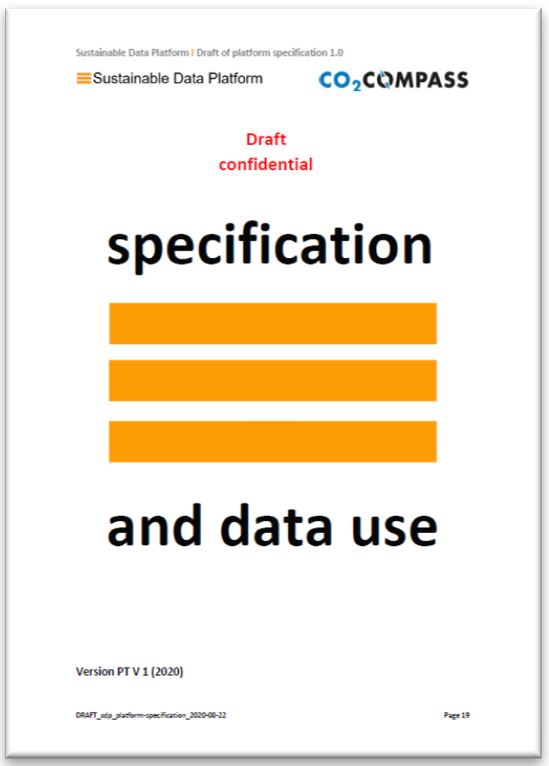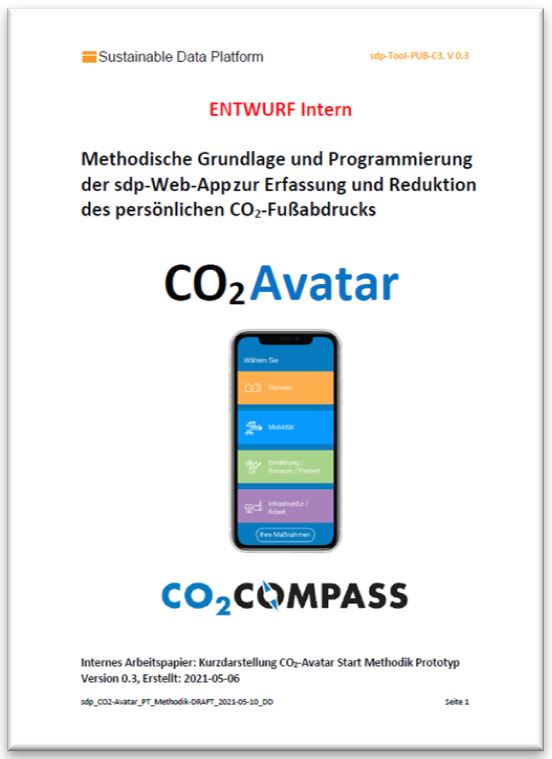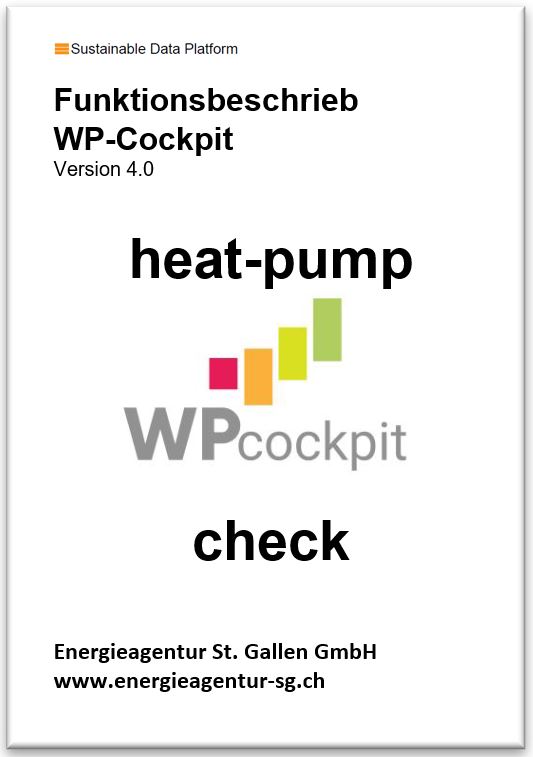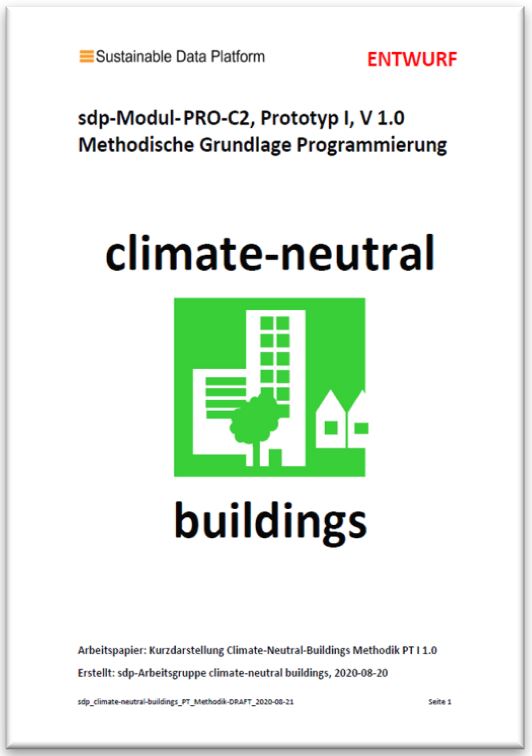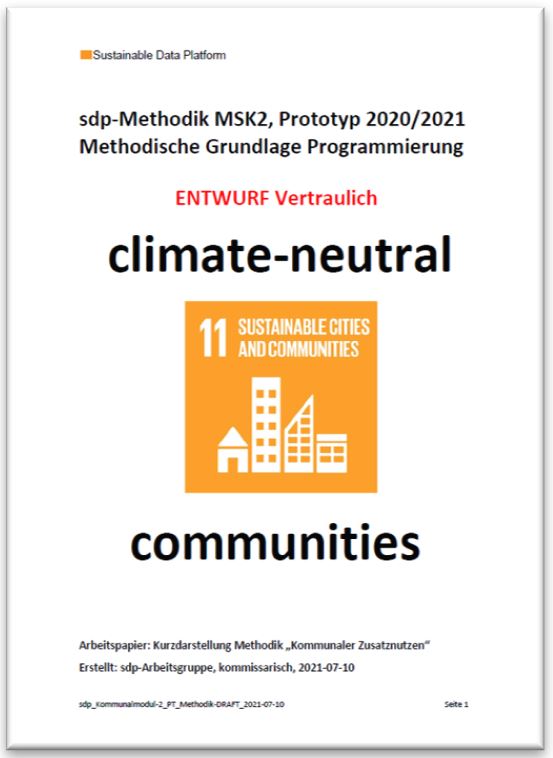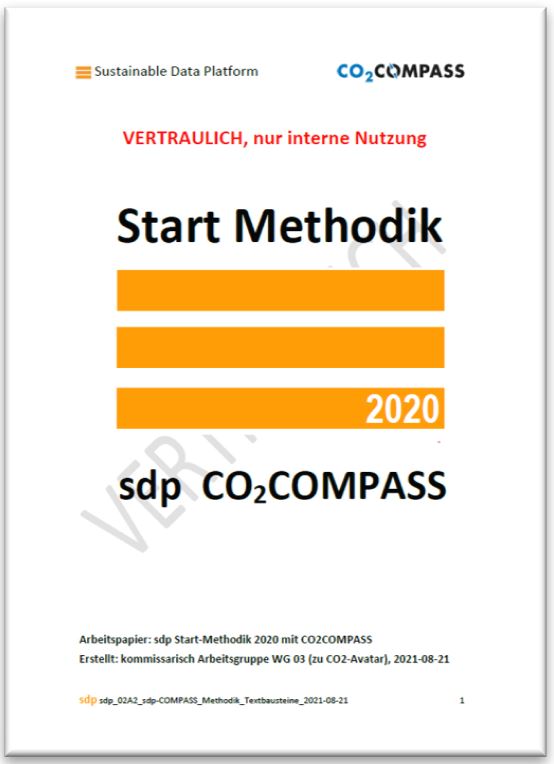Methodology of sdp prototype construction
Despite a climate protection discussion since the first report to the Club of Rome in 1972, there is a lack of tangible indicators for citizens that are aligned with the Paris Climate Agreement and the UN’s sustainability goals. Decisions for effective and affordable climate protection cannot be made: from private purchases to building renovation to planning municipal measures. Not even the CO2 emissions from the production of cars or buildings are transparently available.
The aim of the sustainable data platform is to create a consistent and independent methodology for economically achieving climate neutrality for citizens and communities in Europe.
Methodology is the static of climate protection: boring – but important! Because feed-back mechanisms are, according to [PIK 2019], a “social tipping element” to still counteract the destruction of livelihoods. “Without high-quality data that provide the right information about the right things at the right time, the development, monitoring and evaluation of effective policies is almost impossible” [UN 2014].
open-science processing note
Expertise from practice, science and administration is compiled as the basis for the sdp programming work. The goal is a holistic evaluation with illustrations of relevant characteristic values that can be understood as intuitively as possible. The creation of the methodological basis is to be subjected to continuous quality assurance, which could not be provided throughout in the course of the voluntary prototype construction 2020. Methodological uncertainties and the associated reduced data quality are pointed out.
The above documents contain partly confidential information, unchecked individual assessments and personal data as well as unauthorised graphs, tables, etc.. In the present version, they are used for the internal processing and creation of algorithms. Individual documents can be made available on request while respecting the Platform Code.
For further development, it is planned to prepare the basics in an understandable way and to publish them as at least a bilingual wiki (open science). The first further wiki contributions were collected on the topics of “definition of climate neutrality”, “compensation” and “hydrogen”.
The sustainable data platform needs your support
We need your support to process and provide independent data for evidence-based climate protection.
[UN 2014]: Independent Expert Advisory Group on a Data Revolution for Sustainable Development: A World that Counts, Mobilising the Data Revolution for Sustainable Development. Report prepared at the request of the United Nations Secretary-General, November 2014
[PIK 2019] Information feedback in the sense of disclosure of information on greenhouse gas emissions is a “social tipping element” (STE6) that can lead to disruptive change to limit Earth’s overheating. Source: Social tipping dynamics for stabilizing Earth’s climate by 2050, Contributed by Hans Joachim Schellnhuber (PIK-Potsdam), November 15, 2019.
